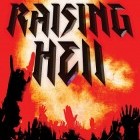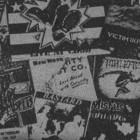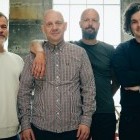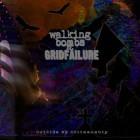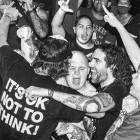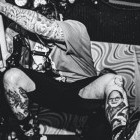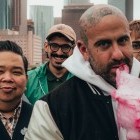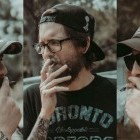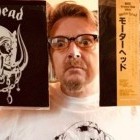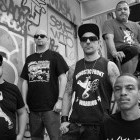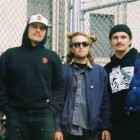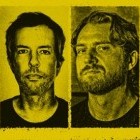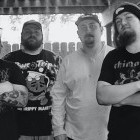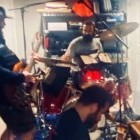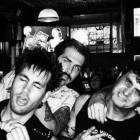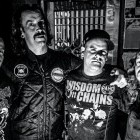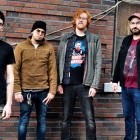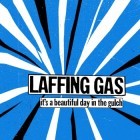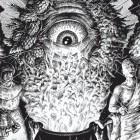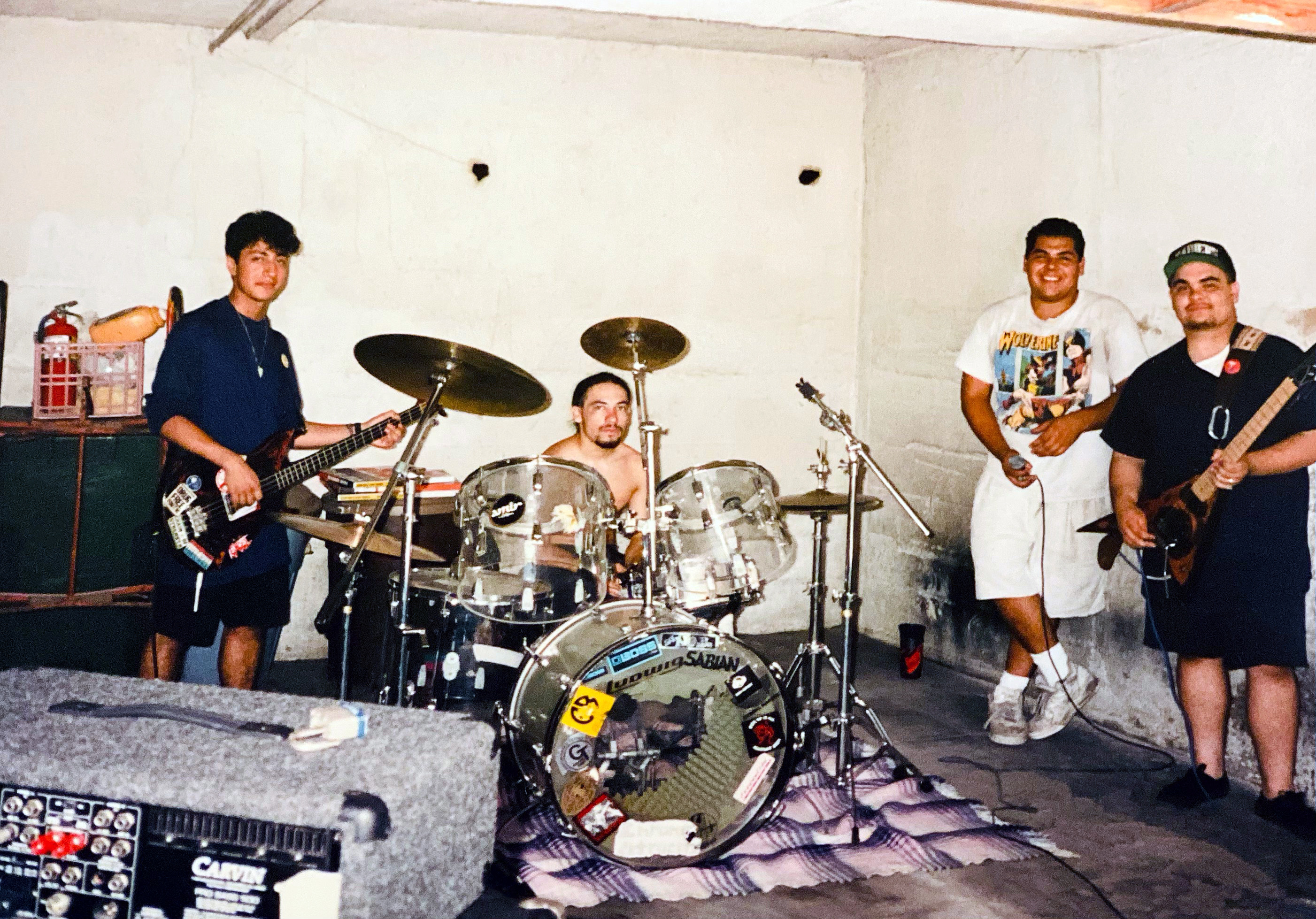
Interlocked was a straight edge hardcore band that existed in Los Angeles from 1989-1991. In their time as a band, they released a demo and a live session via KXLU Radio Los Angeles.
Through the diligent work of Raymon Ruiz of Extinction Burst Records, a DIY label based out of Victorville, California, their Live on KXLU 1991 is being released on vinyl for the first time and is up for pre-order now.
Their singer Akzayakatl “Mexi” Mexikatzin was kind enough to wax nostalgic on the band’s history, which provides rich context to the release and solidify its importance in the hardcore collective subconscious.
Please give us some background on how the band formed.
The founders of the band are the Gonzalez brothers, Aldo (drums) and Sergio (guitars) aka Chuck. We are all from Boyle Heights, a nearby barrio of East Los (East LA). The brothers lived about a mile from the Aliso Village Housing Projects, where I grew up, which is near the LA River/Little Tokyo/Downtown LA.
We all met while we were students at Roosevelt High, through mutual skate friends. While I was a student there, I met a gal named Imelda Uribe and her boyfriend Cesar Mejia, who played bass in a metal band called Metal Storm. One day Cesar invited me to my first gig, which was in Imelda’s backyard in East LA, so I decided to ditch my church group meeting to check out what the other kids in school were doing on the weekends.
Cesar also told me that my skate homies, Aldo and Sergio, played in a band too and they would be playing that night. I had no idea they were in a band! I got to see Aldo and Chuck rock out in their straight edge band called Xpression. This was my introduction to straight edge.
That night also included a punk band called Misled and another straight edge band called Strength In Numbers. Hearing the speeches before the short songs were played really clicked with me. I was amazed at how these young people, like me, were handling shit. They were speaking about things I was living in (drug abuse, police abuse, gang violence). I immediately felt connection and belonging. The next Monday morning after that weekend, school was entirely different from then on because I realized that much of the crowd I hung with or skated with were musicians, and now I had more in common with them, which made me feel super cool, and of course I felt less alone.
Eventually, Xpression broke up and Chuck and Aldo were looking to start a new project and held an audition. A mutual skater homie we called Taco told me about it and egged me on to audition. So I hit up Chuck about it and he gave me a video tape of one of their practice sessions. After what I saw that first night I totally wanted to be a part of the backyard scene. I wanted to do more than just watch bands play.
I wanted to rock out. So I studied the tape for hours to learn the timing of the songs. That day of the audition, three guys tried out (including me), but the other guys couldn’t keep timing. So the next day, Chuck hit me up and asked to come to practice two times a week.
Soon after, we went through several bass players and eventually Heric Dueñas came into the Boyle Heights scene. He was a fuckin’ cool cat and later I would learn that he was (and probably still is) the most mature of the gang. He was serious and dedicated which inspired me to do the same. He did a zine called Patchwork Fanzine and also printed t-shirts. Heric had a car and he exposed me to other bands outside the barrio. My influences were growing exponentially by this time and this manifested how I live my life to this day. I’m not sure he knows how big of an influence he was on me.
As our time in high school went on, guys like Joey from Strength in Number would give me tips on being a better frontman–how to be more confident on stage, how to write lyrics, and what topics to discuss. Unfortunately, he passed after college graduation due to a rare illness he contracted. We lost Imelda to cancer several months after high school graduation in 1991. That was very difficult for Cesar and I as we were both very close to her. Cesar is a brother to me and my family.
I was sort of awestruck with the energy the brothers and Heric put into their music. I owe a lot to them all for believing in me. Little did I know, I would be the frontman of several bands 33 years later. Today, I play in Kill The Bullfighter with my youngest brother on guitar and my cousin on drums. It’s been an incredible and humbling journey, let me tell you.
Your sound would be familiar to most hardcore listeners (fast and aggressive, but also metallic and bouncy in some places). To my ears, I hear Judge and Chain of Strength primarily in your sound, which doesn’t make a lot of sense because you existed around the same time and they would have been your contemporaries. I just don’t know what came before, besides bands like Black Flag, Minor Threat, Bad Brains, and 7 Seconds!
What artists were you inspired by at the time or were you just doing something that came naturally to you as musicians?
You actually named them: Black Flag, Minor Threat, Bad Brains, and 7 Seconds. I was into classic rock, having grown up with Zeppelin and the Stones. I believe Chuck and Aldo’s dad was a musician, and I know that the guys were into several different genres of music. They were big into hip-hop and introduced me to Public Enemy and KRS One, who would later inspire the band after Interlocked. He also listened to Van Halen,Joe Satriani and Stevie Ray Vaughn. They also liked Infest, Slayer, and Metallica.
Another friend of mine, David Ortiz, the singer of a short-lived band Lock Jaw, would let me borrow his hardcore records. He would often give his music to me and ask me to listen to the style of singing, timing, screaming, tones.
Chuck knew guitar tech and read up on all things guitar. Many times, I rolled over to their home and Chuck was messing with settings on his guitar and trying out new things. He was serious with his craft. I never believed the guys wanted to sound like anyone. They wanted their own sound and they put in the practice and hours to back it up. So we did what came to us in practice. One brother had an idea, the other fed off it and it went forward. I was new to all of that, so I was still learning about sounds and styles.
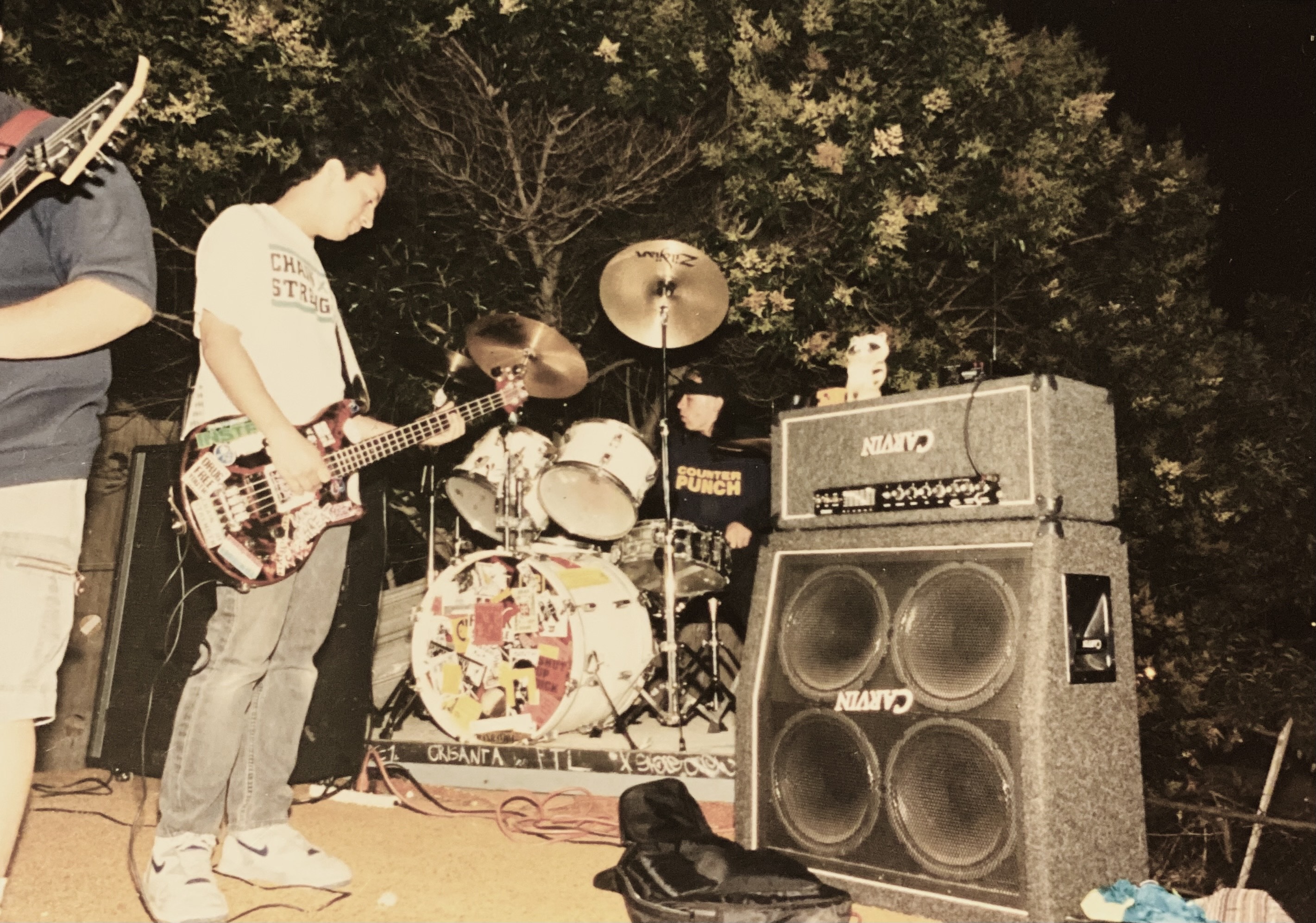
How many shows did you play in your time?
In Interlocked, maybe 20-30? We were playing almost every weekend for some time as we were organizing most of the SEHC shows in Boyle Heights at the legendary Dust Bowl. I recall playing a shitload of gigs in and out of Boyle Heights too. Many people were like “hey there’s a gig tonight you guys want to play?” and we were ready to rock out at any time because we had a dedicated practice routine. I think we practiced for two hours, twice a week. We knew each other’s mannerisms pretty well fairly quickly.
Do you have any shows that stand out in particular?
They all do and don’t at the same time. I think the shows that really stand out for me are my first, which were a total nightmare. Anything that could’ve gone wrong did–problems with the power, the police, the neighbors, gang fights, you name it. But we did it, and when the show kicked in, people liked it. Shows at the Macondo Espacio Cultural. Heric’s homies ran that place and they hosted some great gigs with great bands!
Other shows that stand out are playing with Downcast, Outspoken, and A Chorus of Disapproval. We played with the Offspring once at the Dust Bowl. One show where we got the metal bands from Boyle Heights and the SE bands to play on the same bill. That was so much fun.
I had nothing but a skateboard. No money, nothing. However, I had tons of friends that were there to guide me. There is no gig that I can say, “meh, I just did it to get through”. When I pick up the mic in a gig, expect my soul to pour out.
From 1988 to the present day, I follow this routine before and during a gig–I listen to the Dickies (Imelda’s influence and I honor her with this), then Fugazi (my favorite hardcore band and the best show of emotion I have ever seen on stage), and then while playing, I give everything I have. So much so, that the day after the gig I typically just stay home reliving the moment and the moments from years before that. I know I am fortunate so I try to live it as much as possible.
What was the scene like at the time or who were some of the other bands you played with frequently?
We had to carve out a straight edge scene and that included lots of shit talking from the “mainstream” backyard people/bands. Straight edge was part of the reason I survived, along with skating. I know what drugs and bullets do to people, to children. I was living in the housing projects, which for a while, were the most violent in the country. I have seen people laying in stairwells, dead from an OD, the shootings.
Fuck, it was a warzone, which has had an insane impact on my mental health. The influx of crack in 1988/1989 created so much chaos and Hollenbeck PD only contributed to the problem. I don’t know how many kids in the scene knew of that life or the things we had to deal with despite the songs being written were about anti-drug use or police abuse.
The straight edge scene in Boyle Heights wasn’t big. That Barrio is a punk/metal-influenced scene since like, forever. We played with Eyelid several times, a couple of Long Beach bands like Blindside and Life Alert and the local homies, Misled, Strength In Numbers, No Church on Sunday, Chronic Atrocity, Metal Storm and Lock Jaw. I recall playing with punk bands from South Central, Whittier, Commerce, and City of Industry too.
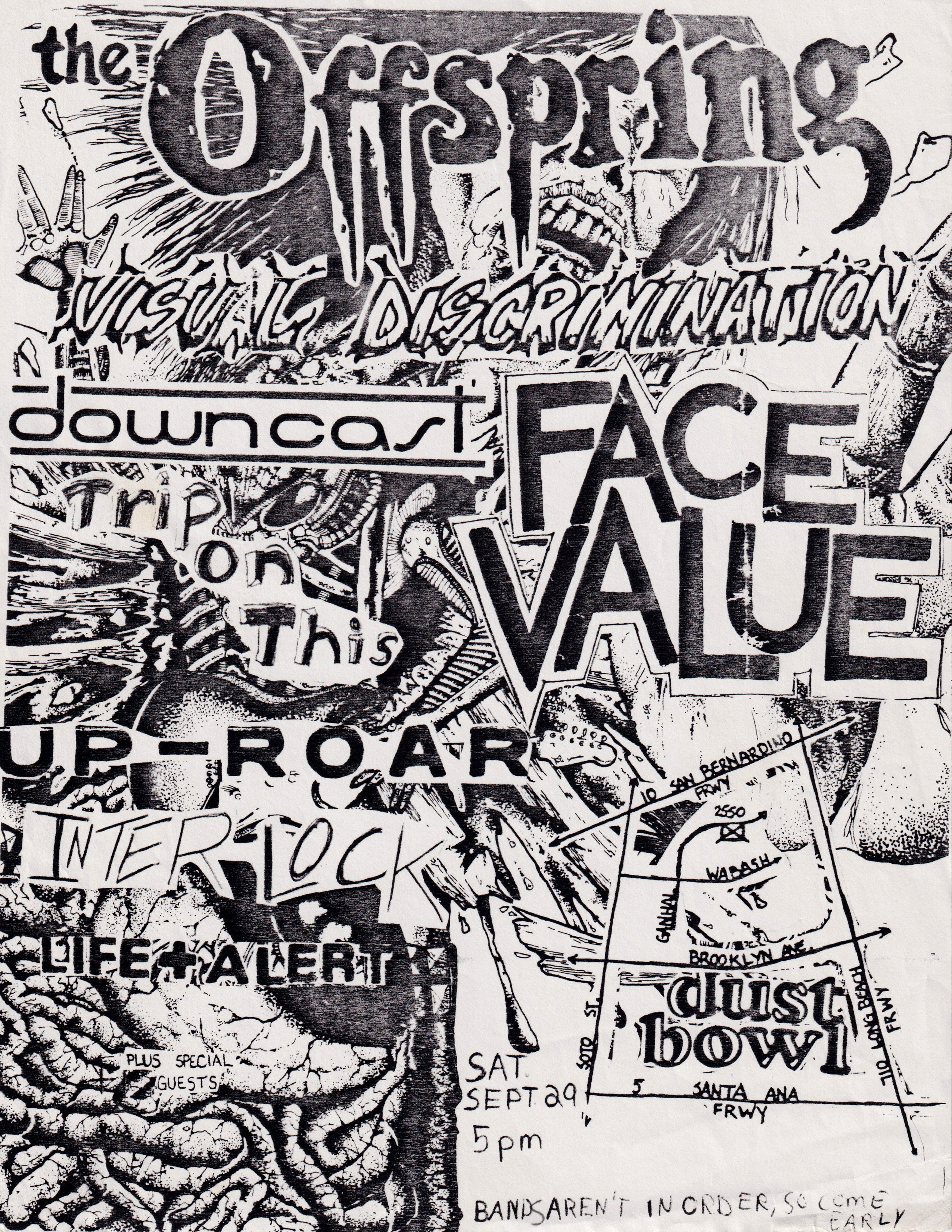
When we watched shows at Spanky’s, or the Country Club, we met kids from more affluent neighborhoods. We realized we were different, however, we also recognized that there was a bond through music and we didn’t let the backdrop of our lives get in the way of meeting others and sharing stories. Going to the big shows was like a reward when the touring bands hit LA. Those gigs we went to were exciting because we got to see the bands we were listening to.
We saw all the big bands; Gorilla Biscuits, Youth of Today, Judge, Sick of It All, Killing Time, Brotherhood, Insted, No For An Answer, also the SST bands like Descendents and B’last. I often wrote to bands after seeing them play or buying their albums. I have several letters from Ray of Today, Guy of Fugazi (my all time favorite hardcore band), Big Frank, etc.
I watched every band we played with and really tried to take it all in as I knew that any day could be my last. That’s the life we had to deal with in the hood. When you start burying homies at 16, you accept any day could be your last. So we lived as much as we could, rocked out hard as we could, loved as much as we could, and moshed as hard as we could.
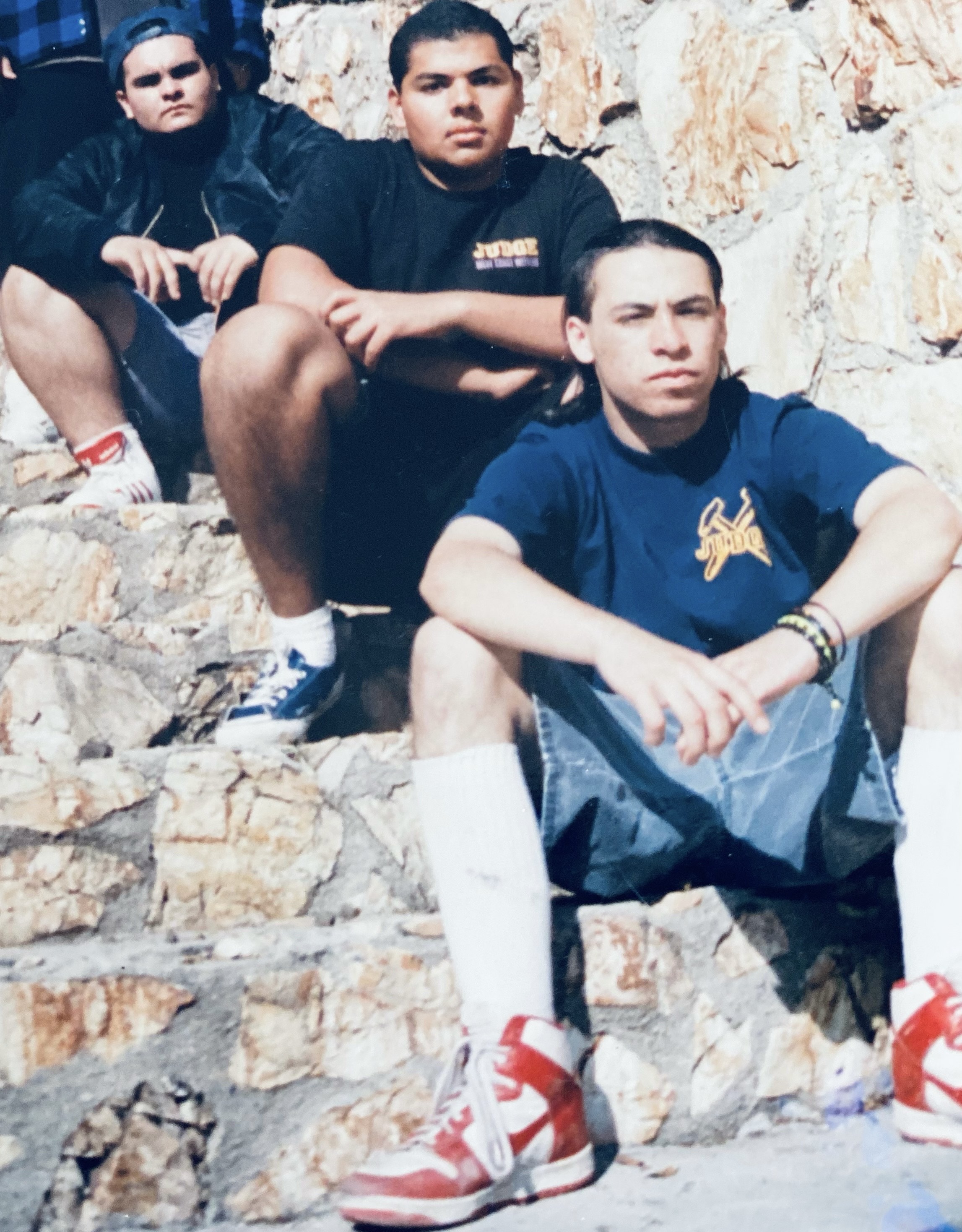
Interlocked was a straight edge band. Was this the primary focus of the band or did you just happen to all be straight edge as individuals in a hardcore band?
The primary focus was straight edge. Chuck and Aldo’s previous band Xpression, was straight edge, so that was big for us, especially living in the area we lived in. It was sort of a life and death stance we took that we carried with pride.
We wore our resistance on our sleeves and we had our parents to back us up. Chuck and Aldo have a beautiful family that were always present at gigs and helped us at every step. The Gonzalez family really played a big part in the band behind the scenes. What parents wouldn’t want their kids to be anti-drug, anti-alcohol, anti-police abuse?
Looking back on the band and its music, how do you feel? Is there anything you wish you would have done differently?
I believe we did all we could at the time. I have no regrets, nor do I feel we could have done anything different. The work ethic that I learned and the positive vibe we helped create and participated in remains one of the most beautiful memories I have. Without that, there would be no here and now. We upheld and passed on a scene carved out by youth for youth, free of mainstream influence.
We brought barrio and suburban kids together, played great music, expressed ourselves positively, all the while resisting all the negativity our barrio was drowning in. I'm proud of what we did collectively and I'm very fortunate to have been able to do what I did and continue to do. I owe everything to many special people as they all had an influence large or small.
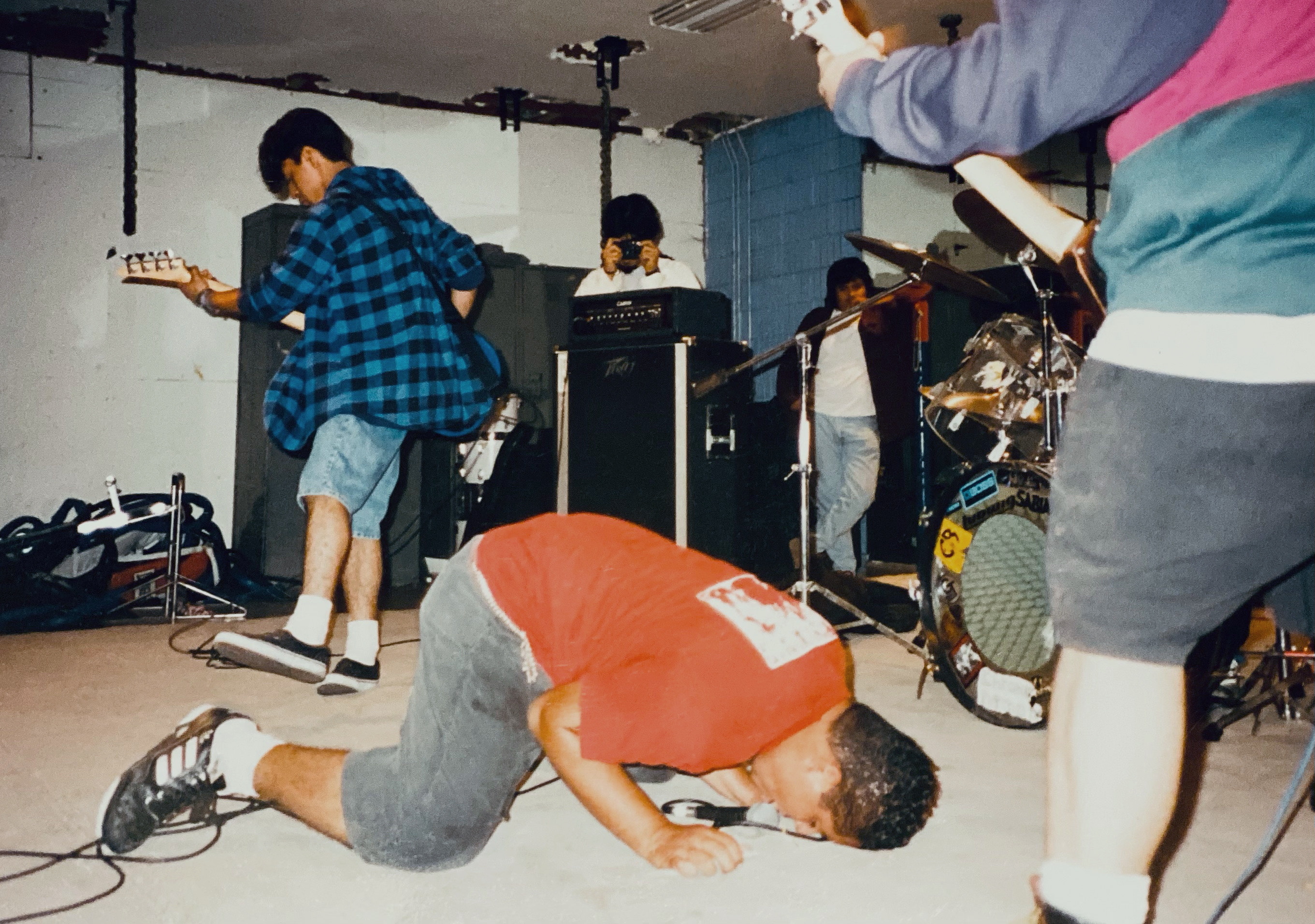
Have you all continued to play music after Interlocked?
Yes, after Interlocked broke up, it seemed like all the other barrio bands broke up. I guess it was meant to be as with most relationships after high school. Everyone grows up and chooses their path. I guess for us, our paths crossed again sooner than later. Aldo and I formed a band called Tezacrifico with Cesar on bass, and his homie Caxo who was a very talented musician on guitar, who previously played in a metal band called Chronic Atrocity, and then we called our friend Lalo to be the second vocalist.
The band formed during the Proposition 187 years (an anti-undocumented worker bill) and we thought it would be a good idea to reach out to the forgotten and neglected Barrio youth to instill pride and educate by having lyrics that reflected our Indigenous, non-Hispanic/Latino, non-Church background. We felt that we needed to remind ourselves of who we really are and not what the mainstream wants us to be, but rather what our ancestors wanted us to be.
It was difficult moving the message through, but we did and I think we were successful as we still get people asking about that band and our music is bootlegged from here to Japan. I feel we had an influence and even if we changed one mind, we were successful in our mission. Our last gig was in Mexicali, Mexico. It was EPIC!! Heric and our friend Dirk put out a release for Tezacrifico..
Caxo, Lalo, Heric, and Dirk played in a couple of punk bands like Cara De Mil Putasos and Kontraattaque. Lalo stopped playing and is living large being a dad. Caxo was playing with a band called Aztlan Underground and is still one of the greatest drummers I have ever known.
Aldo took up acting and can be seen in Sons of Anarchy and Charlie Sheen's Anger Management, and many other commercials and TV endeavors. Heric is still very involved in hardcore. Cesar is owner operator of The Shelter Studios and a professor of Sound Engineering at California State University Dominguez Hills.
After that, I moved on to form Kill the Bullfighter with my youngest brother and cousin (who I used to take to gigs after the first show I attended at Imelda’s, when they were like in the 6th or 7th grade). We used to tell my mom we were at church when in fact we were in backyard gigs, oftentimes dodging bullets.
Straight edge was something I wanted to pass on to them being that we were immersed in drug/gang violence and I saw that as a way to help them not only cope, but also to feel the resistance against such negativity.
We lost Dirk several years ago after a show. It was a blow to all of us, which makes this Extinction Burst project a tribute to Dirk’s dedication to the scene, as he recorded the session from his radio that is being used for this project!
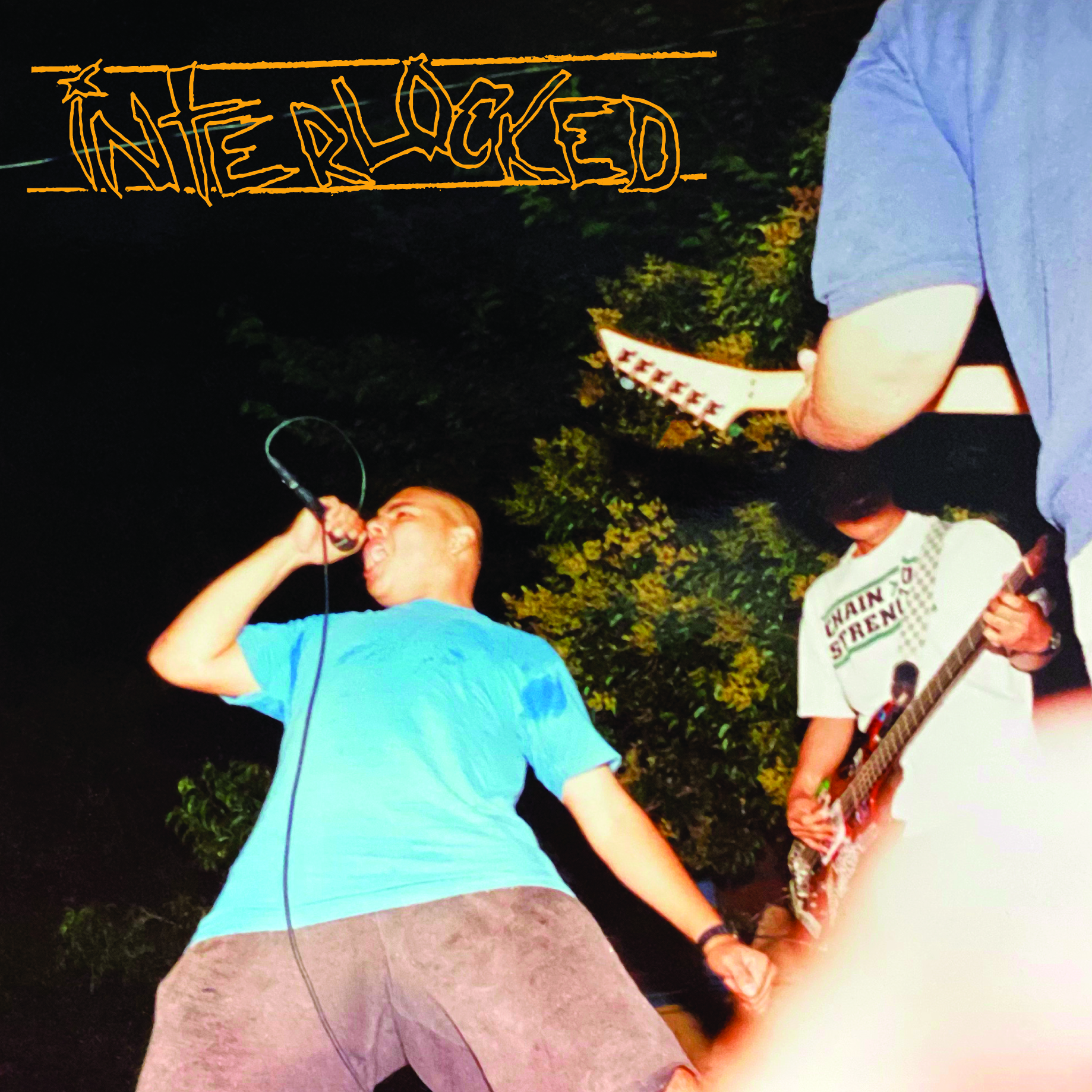
***
The Live on KXLU 199112-inch begins shipping in April (pre-order).
***
Help Support What No Echo Does via Patreon:
***
Tagged: interlocked

